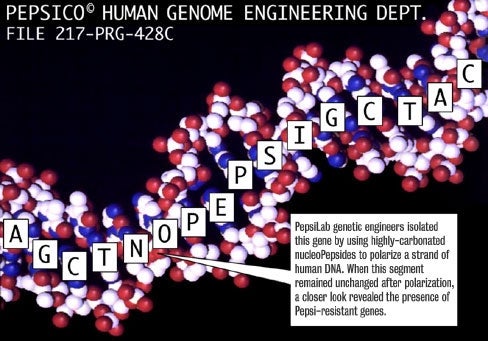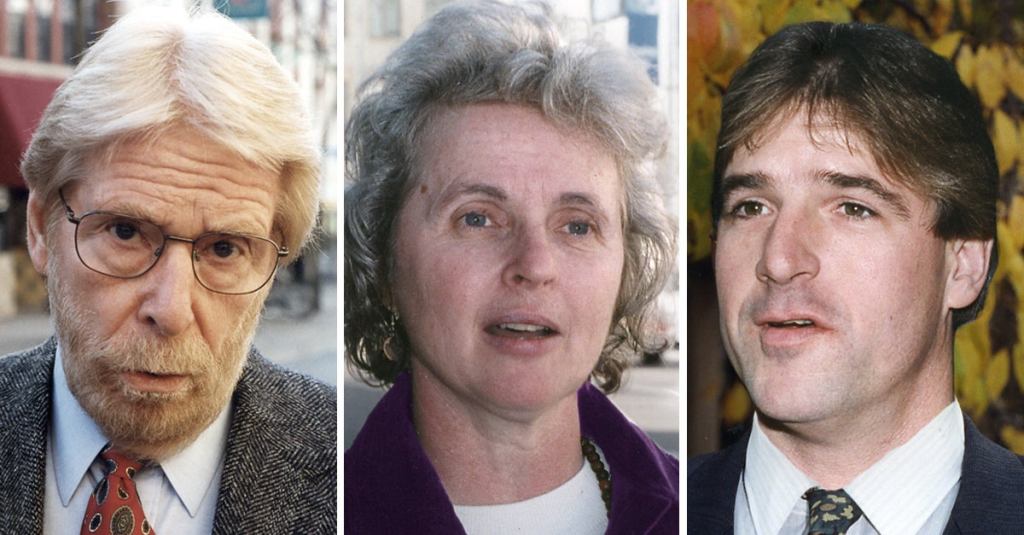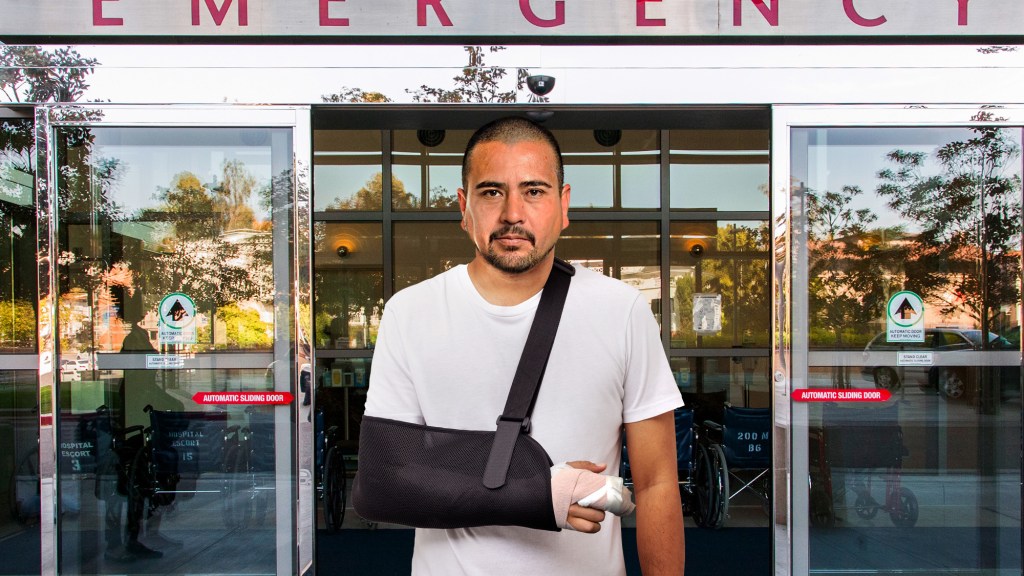SOMERS, NY—At a press conference Tuesday, scientists working for the prestigious PepsiLab facility announced the historic, first-ever isolation of the long sought-after “anti-Pepsi gene,” the basic building block of DNA responsible for so-called “Pepsi resistance” in adult soda consumers.
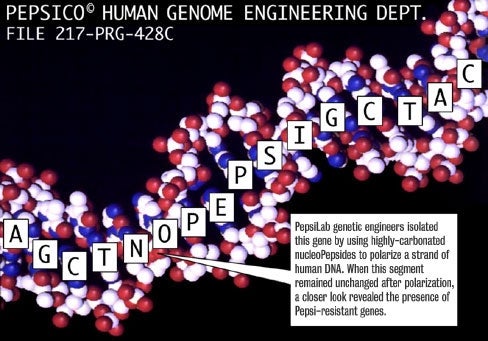
Visibly overcome with emotion, the team celebrated its discovery at the jubilant press conference, at which PepsiLab research head Jameson Hargrove opened a rare bottle of 1991 Crystal Pepsi and shared it with fellow scientists and reporters.
According to Hargrove, those suffering from Pepsi resistance possess a rare strand of anti-nucleoPepside DNA absent in healthy, normal, “Pepsi-positive” people. By locating the mutant Pepsi-resistant gene, he said, his team has taken a major step toward finding a cure for hereditary Pepsidebility.
“For years, geneticists have searched for this gene in the hopes of making the great taste of Pepsi available to all people—even those stricken with Pepsidebility, such as Ed and Agnes Herlihy, of Augusta, ME, who have stated a lifelong preference to the other leading cola brand,” Hargrove said. “But now, with the isolation of this anti-Pepsi gene, we have taken the first step toward curing people like the Herlihys, who are outnumbered by Pepsi drinkers three-to-one. The long road to healing can now finally begin.”
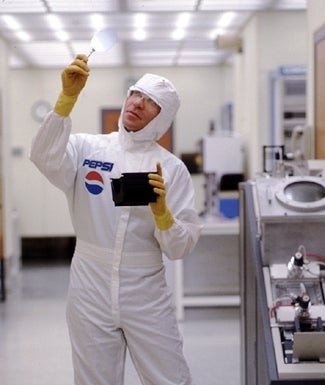
For the last several decades, it was thought that non-Pepsi-appreciative soda consumers could be cured only through massive bombardment of Pepsi-positive cathode radiation, administered through a television monitor.
This risky, arduous form of treatment—which involved months of hours-long sessions of exposure to the celebrity-charged cathode rays—had serious side effects, including irritability and loss of sleep, and, in some cases, proved almost as debilitating as the condition it was intended to treat.
Further, even when successful, the treatment typically had short-lived results.
“Even when $10 or 20 million was invested in obtaining a high-profile endorsement from, say, Michael J. Fox or the Jacksons, many of the patients tested resumed drinking the other leading cola brand immediately after the treatment stopped,” said Hargrove. “That’s how insidious this condition is.”
Hargrove said that in 1989, a team of Pepsi-funded scientists became convinced that if the genetic triggers for Pepsi-intolerance could be found, there might still be a way to help all people enjoy Pepsi permanently, painlessly, and without the expensive and often futile radiation-bombardment treatment.
After nearly nine years of research, PepsiLab researchers are finally on their way to a cure. “Isolating this gene was the major hurdle to curing Pepsi resistance,” Hargrove said. “Now, through the wonders of genetic surgery, the world’s remaining non-Pepsi-drinkers will finally end their suffering and, for the first time in their lives, experience the refreshing taste of Pepsi—the choice of a new, next generation,” Hargrove said.
Pepsi corporate spokespersons stressed that, despite the breakthrough, genetic surgery is still an experimental science, and that the actual genetic reengineering of vast sectors of the populace into loyal Pepsi consumers may not proceed “for some time now.”
“It is our duty to our fellow man to help Pepsi be enjoyed by all, and we’ll do everything we can to make that day a reality,” Pepsi director of corporate communications Janet Dorner said. “As long as one person out there is still afflicted with the terrible disease of non-Pepsi-consumership, we will not rest.”


